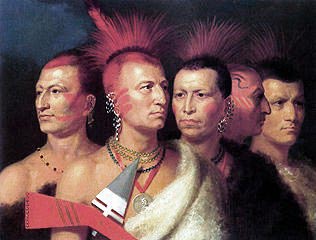
Poem
We are the stars who sing, we sing with our light;
We are the birds of fire, we fly over the sky.
Our light is a voice.
We make a road for the spirits,
for the spirits to pass over.
Among us are three hunters who chase a bear.
There never was a time when they were not hunting.
We look down on the mountains.
This is the song of the stars.
--Abenaki-Passamaquoddy Song
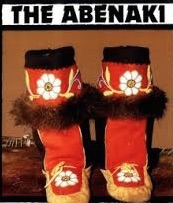
This song was collected in Maine by Charles G. Leland around 1882; he gives a phonetic version in the language-dialect of that time, "Glint-wah-gnour, Pes Sausmok," the "Song of the Stars", in Algonquian Legends, Dover reprint (1992) of Leland's 1884 book pubished by Houghton Mifflin.
Abenaki Chiefs and Leaders
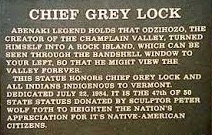
Abenaki Images
Abenaki Nation
Principal tribes of the Abnaki confederacy:
Etemankiak (Etchimin)
Kanibesinnoak
KennebecPatsuiket
Norridgewock in part
Nurhantsuak (Norridgewock)
Patsuiket (Sokoki in part)
Pentagoet (Penobscot)
Ouarastegouiak (Malecite)
Sokoki in part
Sokouakiak
Abenaki Tribe (Abanaki, Abnaki, Abenakis)
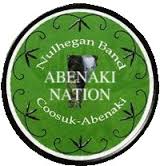
Abenaki Tribe at Nulhegan~Memphremagog
Abenaki Tribe (Videos)
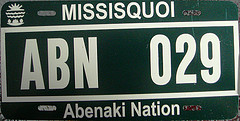
Abenaki Nation
In a letter sent by the Abnaki in 1721 to the governor
of New England their divisions are given as follows:
Anmissoukanti (Amaseconti)
Arsikantegou (Arosaguntacook)
Kwupahag
Medoktek (Medoctec)
Muanbissek
Narakamigou (Rocameca)
Narantsouuk (Norridgewock)
Ouanwinak (Wewenoc, south edge of N. H.)
Pegouakki (Pequawket, N. H.)
Pentugouet (Penobscot)
Pesmokanti (Passamaquoddy)
The following is a full list of Abnaki tribes:
Accominta Tribe
Amaseconti Tribe
Arosaguntacook Tribe
Etchimin Tribe
Malecite Tribe
Missiassik Tribe
Missisquoi Tribe
Norridgewock Tribe
(the Abnaki in the most limited sense)
Passamaquoddy Tribe
Penobscot Tribe
Pequawket Tribe
Rocameca Tribe
Sokoki Tribe
Wabenaki Tribe
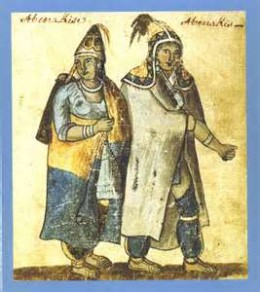
|
Gens of the Abenaki
The Abenaki Tribe was broken down into gens which is similar to a clan.
Very little information is known about these gens or they no longer exist.
They had fourteen gentes:
Mals’-süm – Wolf
Ta-mä’-kwa – Beaver
Pis-suh’ – Black Wildcat
Maguh-le-loo’ – Caribou
Ah-weh’-soos – Bear
Kä-bäh’-seh – Sturgeon
Skooke – Snake
Moos-kwä’-suh’ – Muskrat
Ah-lunk-soo – Spotted Animal
K’-che-gä-gong’-go – Pigeon Hawk
Meh-ko-ä’ – Squirrel
Che-gwä’-lis – Spotted Frog
Koos-koo’ – Crane
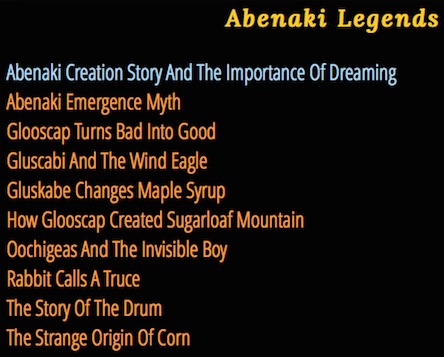
Abenaki Creation Story
Azban the Raccoon
Badger and the Green Giant
Strange Origin of Corn
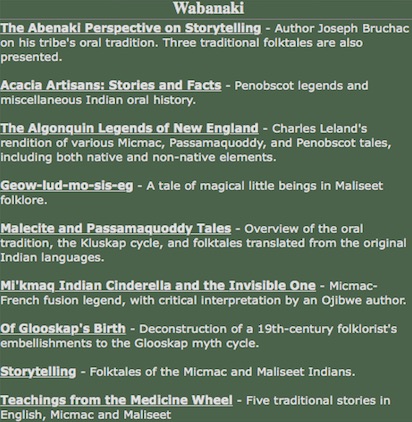
Wabenaki Stories
More Stories
The main body
of Abenaki are in western Maine, mostly in the valleys of the Kennebec, Androscoggin,
and Sacos rivers, and the neighbouring coast. They originally emigrated from
the Southwest, having encountered John Cabot in 1498; but the Indians had no
other dealings with white people at that time. In 1604, Champlain passed along
the coast and visited Abenaki bands. In 1607 and 1608 the Plymouth Company made
an unsuccessful effort to form a permanent settlement at the mouth of the Kennebec.
Later, the Abenaki withdrew to Canada, settling around St. Francis.
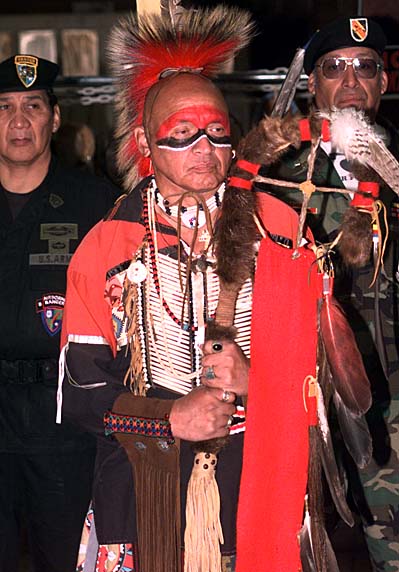
The Abenaki (Abnaki, Alnobak) are a Native American tribe and a First Nations band government.
They are one of the Algonquian-speaking peoples of northeastern North America. The Abenaki live in Quebec
and the Maritimes of Canada and in the New England region of the United States, a region called Wabanahkik
("Dawn Land") in the Eastern Algonquian languages.
The Abenaki are one of the five members of the Wabanaki Confederacy.
"Abenaki" is a linguistic and geographic grouping; historically there was not a strong central authority,
a large number of smaller bands and tribes who shared many cultural traits, and who became
together as a post-contact community after their original tribes were decimated by colonization, warfare and disease.
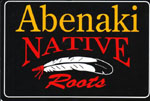
 Return to Indigenous Peoples' Literature
Return to Indigenous Peoples' Literature
Compiled by: Glenn Welker
ghwelker@gmx.com
Copyright @ 1993-2016
This site has been accessed 10,000,000 times since February 8, 1996.









